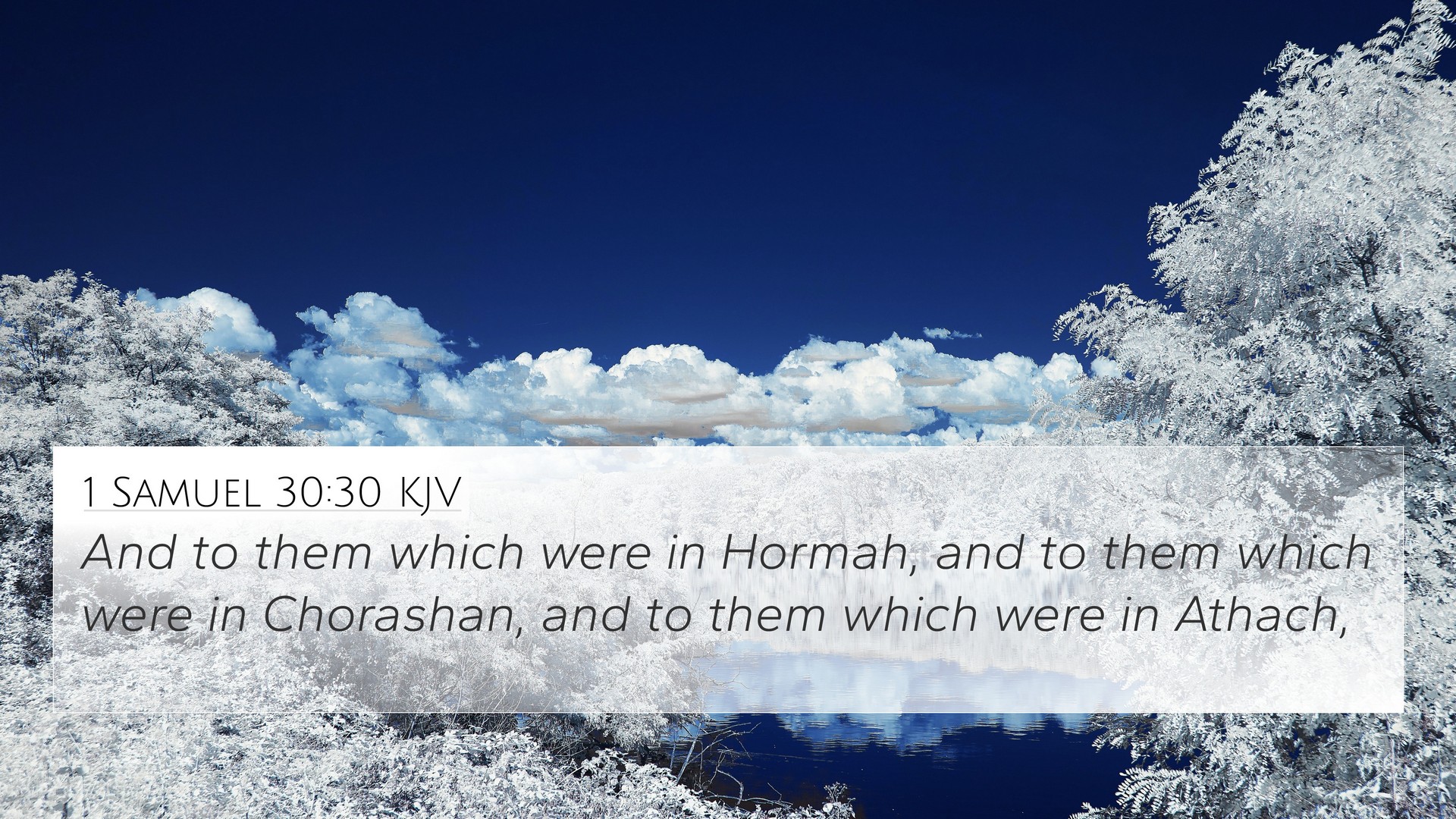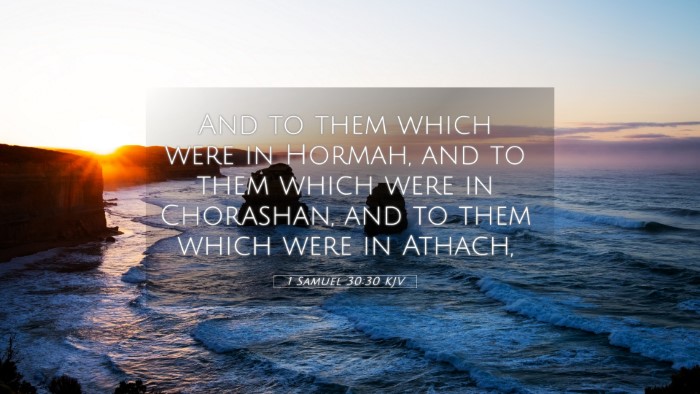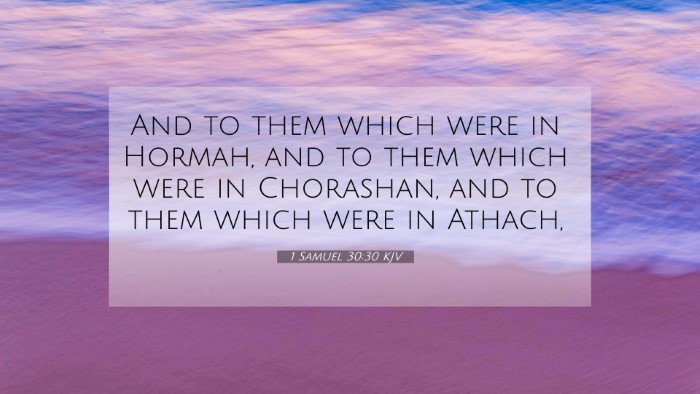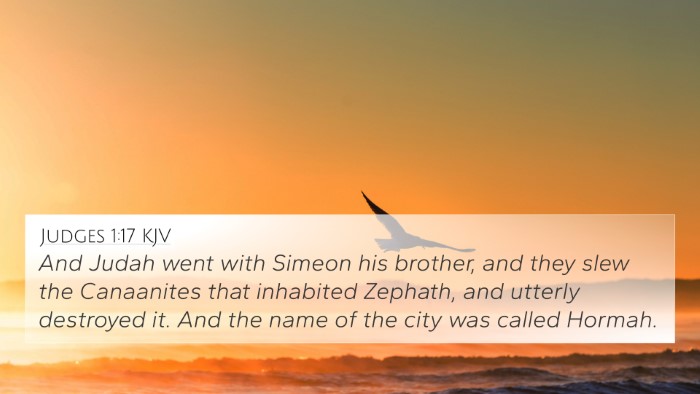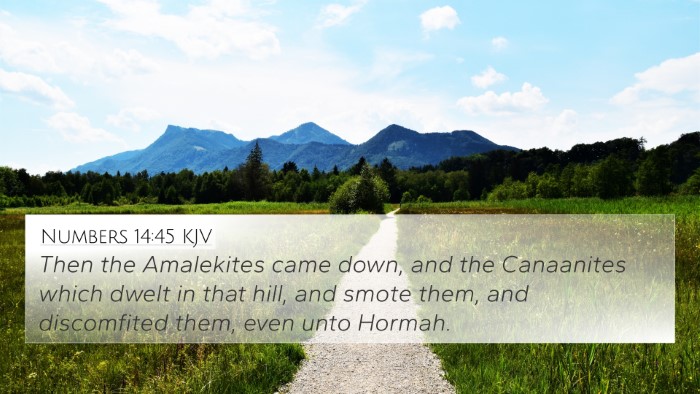Understanding 1 Samuel 30:30
Verse: 1 Samuel 30:30 - "And David sent of the spoil unto the elders of Judah, even to his friends, saying, Behold a present for you of the spoil of the enemies of the Lord;"
Summary of Meaning
The passage of 1 Samuel 30:30 describes King David's actions after a significant military victory over the Amalekites. Upon returning home, David generously shares the spoils of his victory with the elders of Judah, highlighting themes of gratitude, generosity, and communal support. This verse encapsulates David's leadership qualities and his awareness of his responsibilities towards those who supported him.
Commentary Insights
Matthew Henry's Commentary
Matthew Henry highlights that David's sharing of the spoils represents an act of kindness towards his friends and former allies. It signifies that he values their loyalty and acknowledges their support during his struggles. David's gesture is seen as a way of binding the community together through mutual sharing of blessings.
Albert Barnes' Notes on the Bible
Barnes notes that the act of sending spoil to the elders of Judah was both a recognition of their leadership and a reinforcement of David's claim to the throne of Israel. By sharing the spoils, David is reinforcing alliances and demonstrating that he is a leader who remembers and rewards loyalty, which is crucial for his reign.
Adam Clarke's Commentary
Adam Clarke interprets this act as a practical demonstration of David's character and the principles of generosity and community responsibility. He emphasizes that David’s sharing of the spoils not only displays his appreciation but also serves to fortify his relations with Judah as he prepares for kingship.
Thematic Connections
This verse reflects broader biblical themes, such as:
- Generosity and stewardship
- Leadership and communal relationships
- The importance of alliances and loyalty
- Recognition of God’s providence in battle
Cross-references
1 Samuel 30:30 can be understood in light of several related Bible verses:
- 2 Samuel 1:18 - "He also bade them teach the children of Judah the use of the bow: behold, it is written in the book of Jasher." - Further illustrates David's efforts to unite and instruct the people of Judah.
- 1 Chronicles 12:1-2 - These verses elaborate on David's supporters and the loyalty of the tribe of Judah as he rises to kingship.
- Luke 6:38 - "Give, and it shall be given unto you..." - Emphasizes the principle of generosity and reciprocity that resonates throughout Scripture.
- Galatians 6:7 - "For whatsoever a man soweth, that shall he also reap." - Reflects the concept of generosity and its rewards.
- Proverbs 19:17 - "He that hath pity upon the poor lendeth unto the Lord; and that which he hath given will he pay him again." - Links to the act of giving as a divine principle.
- Romans 12:13 - "Distributing to the necessity of saints; given to hospitality." - Suggests the importance of sharing resources within the community.
- Philippians 4:19 - "But my God shall supply all your need according to his riches in glory by Christ Jesus." - Affirms God's provision which enables acts of generosity.
Conclusion
In conclusion, 1 Samuel 30:30 serves as an example of how leaders should act towards their communities, reinforcing bonds through acts of generosity. The interpretive insights provided by public domain commentaries illuminate the multifaceted themes of the verse, encouraging believers to reflect on their own practices of sharing and communal support as aligned with biblical principles.
SEO Keywords
When exploring the connections in the Bible, phrases such as Bible verse cross-references, Connections between Bible verses, and Linking Bible scriptures can enhance understanding. This verse serves as a strong example for a comparative Bible verse analysis and can inform discussions on Bible verses that relate to each other. For those interested in newfound clarity on these connections, utilizing tools for Bible cross-referencing, including a Bible concordance or bible cross-reference guide, can be instrumental.
